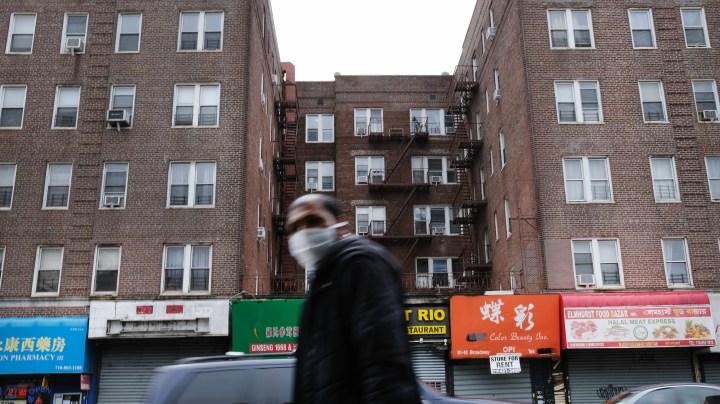#AyudaEnEspañol Campaign Aims to Keep the Spanish Language-Speaking Community Informed About COVID-19

walk through a neighborhood in the Queens borough, which has one of the highest infection rates of coronavirus in the nation, on April 03, 2020 in New York City. Photo by Spencer Platt/Getty Images
One of the early concerns of the coronavirus pandemic was that there wasn’t enough information being circulated in non-English speaking communities. Back in March, Joaquín Castro (D-Texas), chairman of the Congressional Hispanic Caucus, emphasized that it was major government responsibility to ensure that Spanish speakers, in particular, had access to resources that kept them safe and aware of public health precautions being taken around the country.
The call for COVID-related material in multiple languages is pertinent as ever, especially as new data shows that COVID-19 has hit Black and Latinx communities the hardest. In New York City, close to 34% of deaths have been Latinx individuals, and the numbers also mean that the virus is killing black and Latino patients at twice the rate of whites. The Center for Disease Control and Prevention has made efforts to include more translated material on its website, and other organizations have stepped in to make sure that language barriers aren’t an issue for people looking to get more information in Spanish.
One of those organizations is the League of United Latin American Citizens (LULAC), which recently partnered with Hornitos Tequila to launch #AyudaEnEspañol, a social media campaign and user kit that makes critical information accessible to Spanish-speaking individuals. The online kit, which people can access by clicking the photo here, is made up of more than 40 pages of consolidated COVID-19-related resources from government and CDC sites, and also includes critical information about how to access and apply for government benefits, how to get help for seniors, and what to do to secure other benefits and job training. LULAC is asking people to share a link to the site with the hashtag #AyudaEnEspañol to spread the word.
At Harvard Medical School, medical students and physicians also launched the COVID-19 Health Literacy Project, which includes information in 35 languages, among them Navajo, Swahili, and Creole to address other immigrant populations. Still, resources for Latinos who speak native or Indigenous languages remain limited and a challenge.
